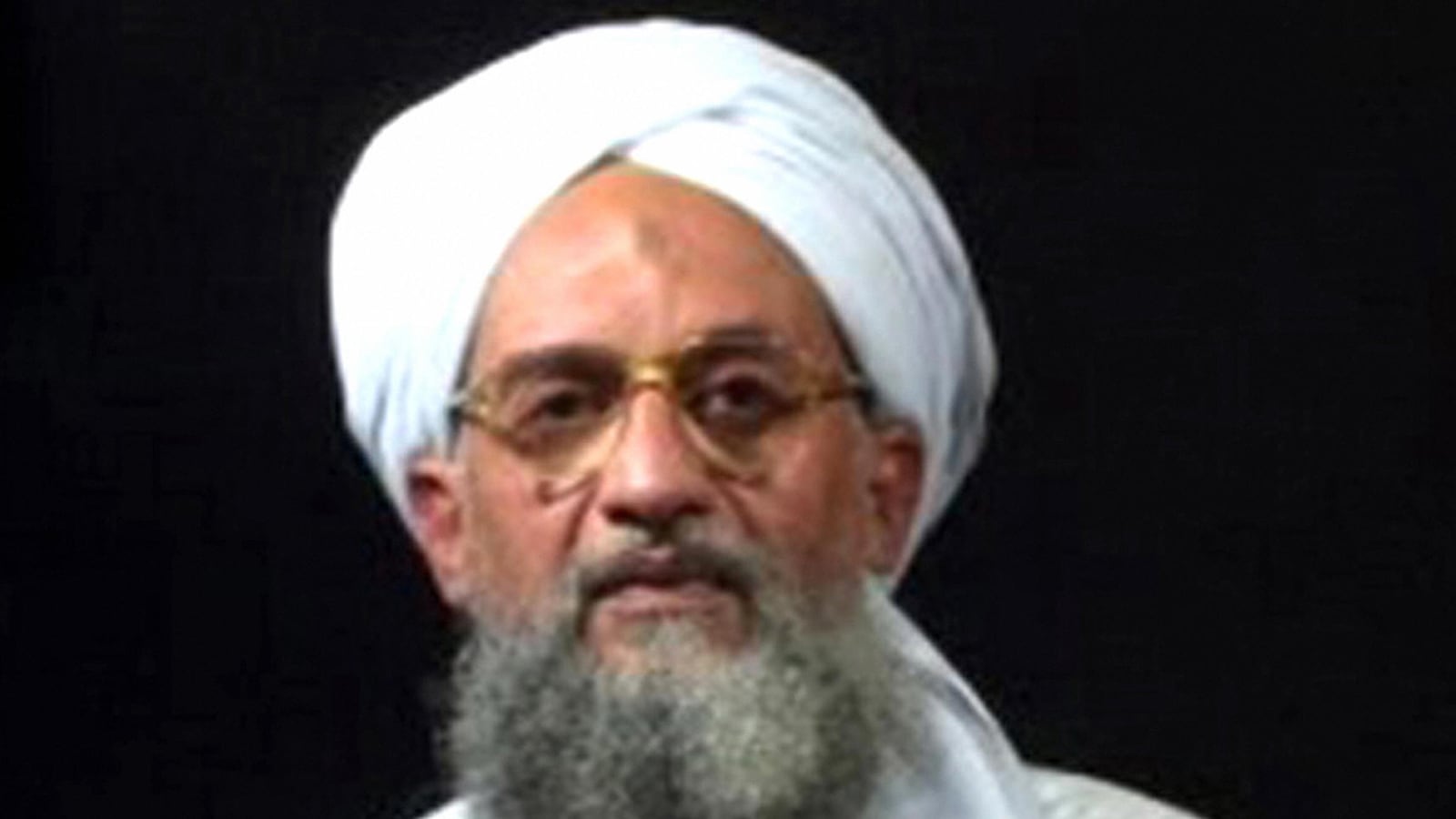After months of silence, al Qaeda’s Amir Ayman Zawahiri reappeared this week with a long diatribe on the state of the global jihad with special emphasis on Syria, Iraq, and Mali. His commentary underscores his central role in the Qaeda movement once again and in providing leadership to the group and its franchises across the Islamic world.

Zawahiri’s latest audio message, his first since last November, runs over a hundred minutes long and was distributed by al Qaeda’s media arm, As Sahab (“In the Clouds”) from his hide-out in Pakistan. It is vintage Zawahiri. He bemoans the fall of the Ottoman caliphate at the end of the First World War and breakup of the Islamic world into 50 or so small states ruled by “traitor rulers” playing the “satanic American program” to benefit the “biggest criminals in Washington, Moscow, and Tel Aviv.” Zawahiri says some of these countries are so small they can only be seen with a microscope on the map and “barely fit the foreign military bases that occupy them,” a likely reference to the American naval base in Bahrain.
Much of his commentary is devoted to attacking France for intervening in Mali this year. Al Qaeda’s North African franchise, al Qaeda in the Islamic Maghreb, had taken control of the northern half of Mali last year and threatened the capital, Bamako, this winter before Paris sent in elite troops and air power to reverse the situation. Al Qaeda has been driven out of the cities like Timbuktu and into the desert, many of its foot soldiers have been killed and some of its top leaders as well. For Zawahiri it is a bitter setback. The stronghold in Mali was to be the centerpiece of a larger Qaeda emirate across the Sahel from Mauretania to Nigeria. He warns the French to expect a quagmire in Mali like “what America was met with in Iraq and Afghanistan.”
Zawahiri lauds the success of al Qaeda in Syria and Iraq in contrast. In Syria, al Qaeda’s franchise, Jabhat al Nusra, has become the fastest-growing Qaeda movement in the world after Zawahiri called upon jihadists from across Islam to go and fight in Syria a year ago. Since then the Qaeda core headquarters in Pakistan has been in close communication with the Nusra front in Syria. Zawahiri also praises the Qaeda organization in Iraq for outlasting the American occupation and for its constant attacks on the Shia government in Baghdad.

In both Syria and Iraq, Zawahiri blames Iran and its ally Hezbollah for supporting the Assad and Maliki governments. He accuses Tehran of secretly colluding with Washington in the invasions of Afghanistan and Iraq. Zawahiri says the “true faces of Iran and Hezbollah have been unmasked” by their opposition to al Qaeda in Syria and Iraq.
Zawahiri pays tribute to the Qaeda franchise in Iraq, the self-styled Islamic State of Iraq, for helping the al Nusra front in Syria get organized. Shortly after Zawahiri’s statement the leader of al Qaeda in Iraq, who uses the nom de guerre Abu Bakr al Baghdadi, publicly claimed credit for helping set up the Qaeda franchise in Syria and announced the two groups had merged into an Islamic State of Iraq and Greater Syria. Al Baghdadi’s statement confirmed what the United States had been saying for months: the al Nusra front is an offshoot of al Qaeda in Iraq.
Next the leader of al Nusra, who calls himself Abu Muhammad al Golani, walked it back a bit. He said he had not been “consulted” on any merger with the Iraqi group, although he was careful not to criticize al Baghdadi and stressed his loyalty to Zawahiri and al Qaeda. The exchange has brought al Nusra out of the closet; it is clearly now part of the Qaeda global jihadist campaign. Al Golani admitted that he had earlier been a fighter in Iraq and was a supporter of the Iraqi franchise but he went out of his way to declare al Nusra’s loyalty is to Zawahiri and the Qaeda core group.
The tempest over al Baghdadi’s comments is likely to pass, and the two Qaeda groups will continue to collaborate closely. Both in Syria and Iraq al Qaeda is growing in numbers and power at a dangerous pace. And with Zawahiri’s encouragement, al Qaeda’s support base across the Islamic world is funneling sympathizers to go to Syria and Iraq to join the fight. In his statement Zawahiri makes clear the end state is creation of a new caliphate across Islam that can lead the struggle to recover Jerusalem for Islam and destroy Israel.
Despite his rambling, Zawahiri’s new statement also underscores his continued centrality to the Qaeda movement as a whole. Often underestimated, the Egyptian leader of al Qaeda provides a strategic leadership role that would probably vanish if he was killed or captured. He smoothly and quickly replaced his predecessor, Osama bin Laden, when the SEALS killed bin Laden in Abbottabad, Pakistan, in 2011. No one challenged him then or challenges him now for leadership of al Qaeda. There is no comparable figure in al Qaeda today serving as Zawahiri’s deputy and heir apparent. Zawahiri has made no effort to groom a successor to lead the global jihad. The lack of a clearly identified number two is a potential vulnerability but only if Ayman’s hideout in Pakistan can be found.




